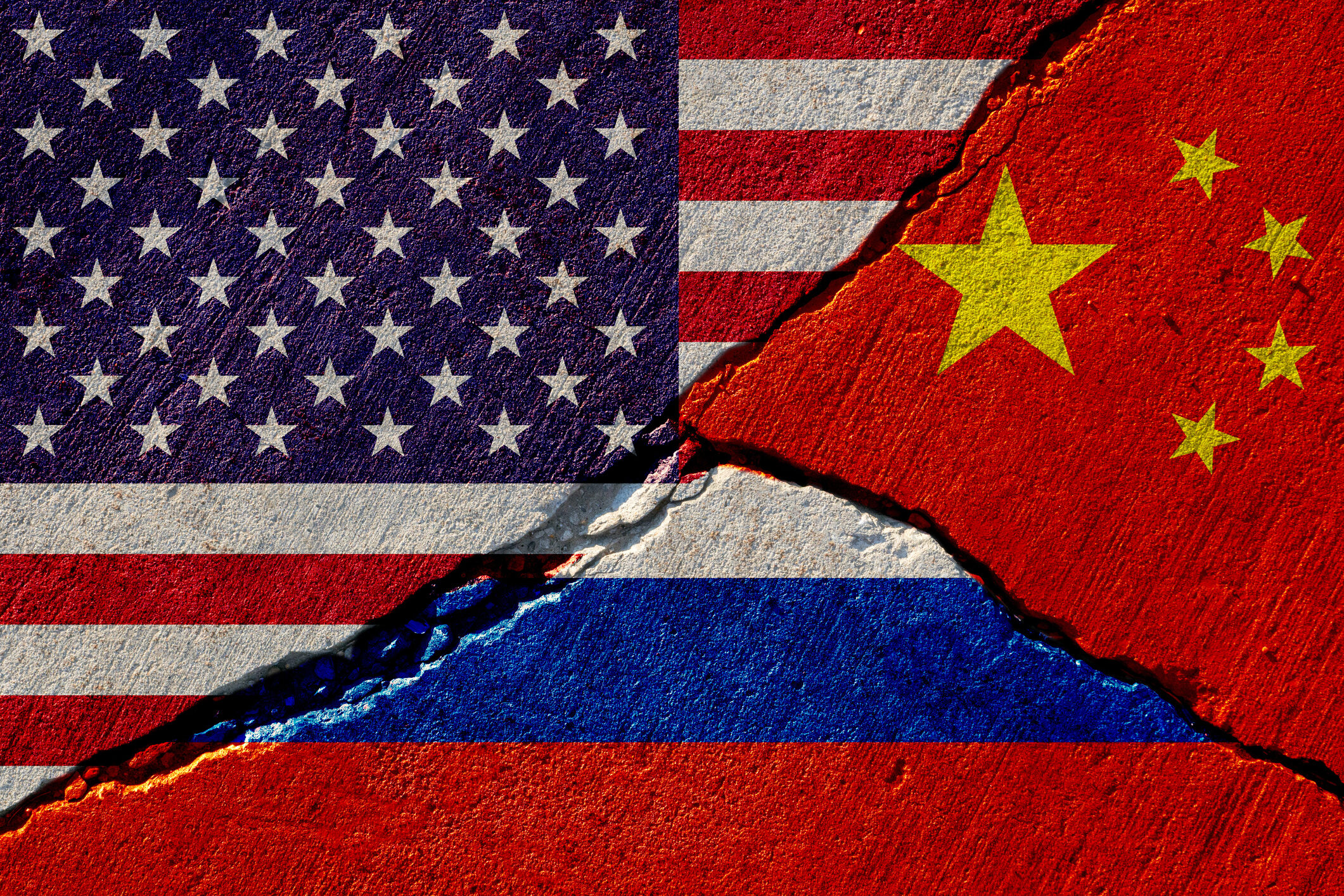The Cold War didn’t end. It just paused for a few years while Russia looked around for a new set of ideological clothes. The fact is that the Russians have never been particularly friendly towards Western Europe. And the current warm Sino-Russian relationship is an historic anomaly that won’t last.
Sandwiched between Europe and Asia with a toehold in both cultures, Russia suffers from paranoia steeped in a long history of devastating invasions from the East and West.
Autocracy coupled with control of neighbouring states has been the policy of successive Russian regimes for centuries. Siberia and Central Asia are buffer zones between Russia and China. Eastern Europe and the Baltic states are a buffer zone against Germany, Sweden and France.
To control the buffer states, the firm hand of an autocrat is required whether it is the Tsar, Stalin or Vladimir Putin. Russia’s national history and its historic mission of expansion comes before other countries’ national aspirations.
Vladimir Putin was a dedicated KGB officer who regards the collapse of the Soviet Union as one of the great political disasters of all time. But he is no communist. He toyed briefly with democracy but decided it was not for him or the Russian people. Putin is a 19th century imperialist who justifies his actions on the basis of Russian national superiority. It is not the collapse of communism he regrets. It is the collapse of the empire that Russian communism accumulated.
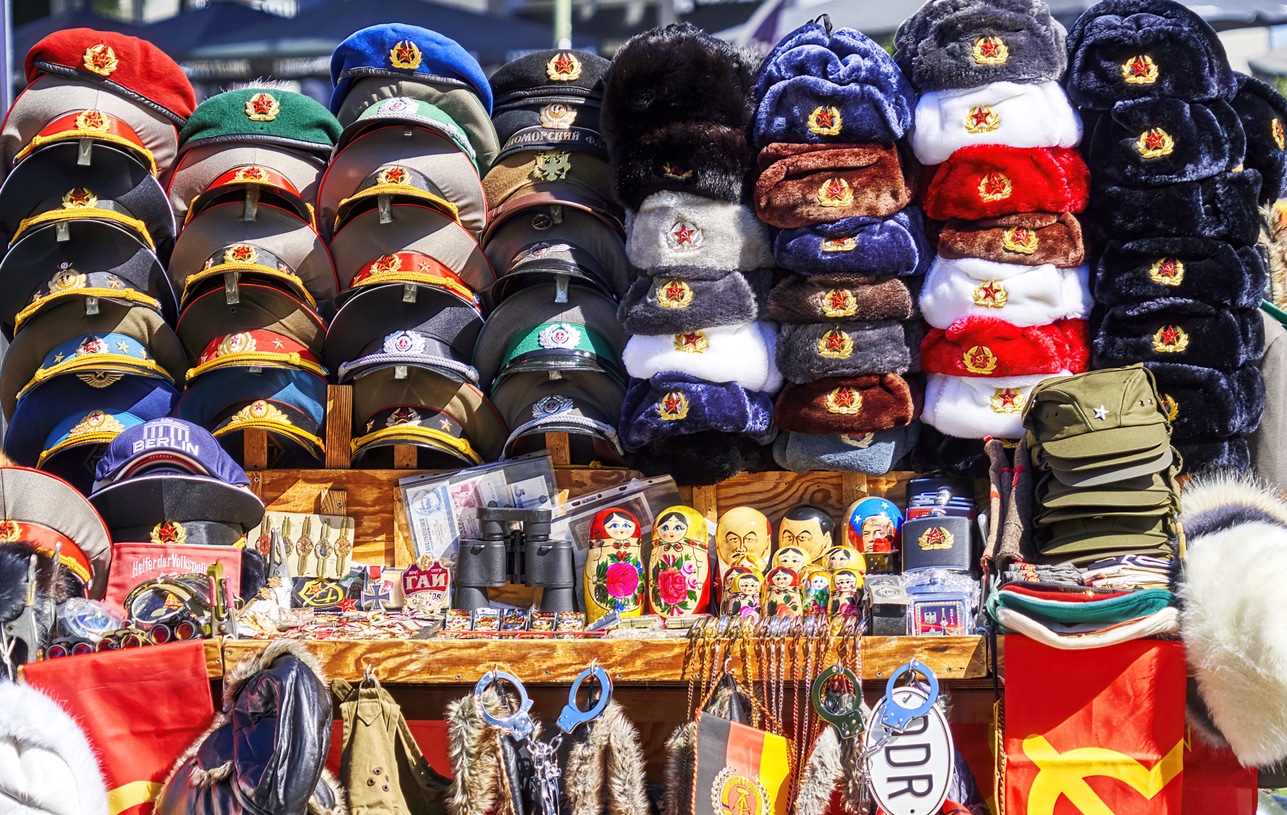
Cold war souvenirs on sale now near Berlin’s Checkpoint Charlie. Ideological choices were binary then: East vs West. Picture by geogif on iStockphoto.
But Russia is not the only country that has changed its political spots since the Berlin Wall fell in 1989 and the Soviet Union collapsed in 1991. The world was so much simpler before these cataclysmic events. You either backed Washington or Moscow. A few took the Beijing line and some were genuinely non-aligned, but the overarching alignment in international relations was East v. West.
Scapegoat politics
Without that simple political infrastructure, political thought has dispersed in multiple directions as politicians have sought vote-winning replacement ideologies. The winner has been the scapegoat/victim model. It has proven the most successful because, to put it simply, it is easier to frighten than to inspire.
So political advancement is achieved by telling your constituents that their problems are caused by Blacks, Whites, immigrants, the EU, the deep state, rich people, poor people, lazy people, the media, liberals, socialists, conservatives, the metropolitan elite, social media, French, Germans, Americans, Chinese….
Scapegoat politics is so easy to manage. Just pick an easily identifiable fall guy and lay the world’s problems at his door. Hungary’s populist leader Viktor Orban has actually fingered a person – billionaire philanthropist George Soros. Turkish President Recep Tayyip Erdogan disagrees, he claims it is Muslim cleric Fethullah Gulen.
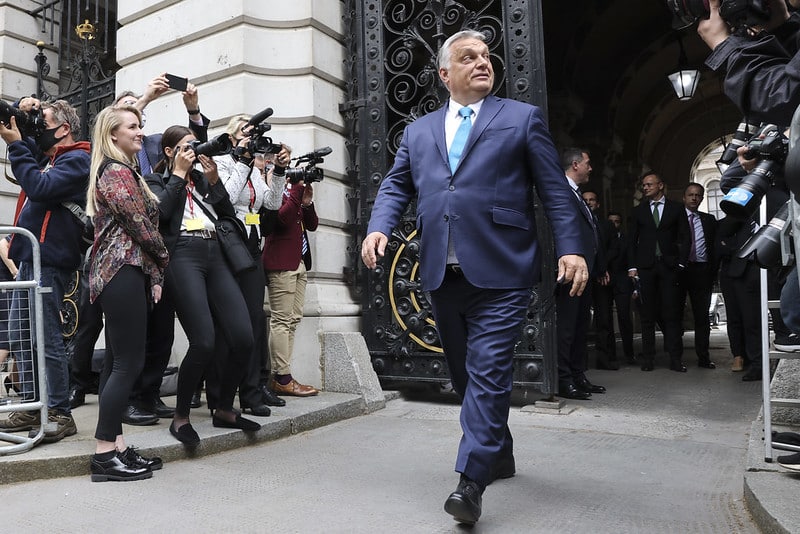
Hungarian Prime Minister Viktor Orban on a visit to see former UK PM Boris Johnson in 2018. He is one of Trump’s “strong and wonderful people”, the new breed of right wing leaders. Picture from No.10 on Flickr.
For scapegoat politics to be successful the political leader has to secure the unquestioning, unswerving blind loyalty of a significant block of the population. In Britain the Conservative Party has linked itself inextricably to Brexit, whose supporters see only the benefits and none of the drawbacks of withdrawal from the EU. In Italy and Sweden immigrants are to blame for all social ills and the facist Sweden Democrats and Brothers of Italy have risen from political slime.
Each of the above examples has left their countries hopelessly divided, and division is the overriding characterisation in contemporary American politics too. And because the United States is the world’s richest country it is the world trend setter.
The American model
More than most countries, American politics is about power. And for half a century since Roosevelt’s New Deal, the Republicans were denied power in the House of Representatives and part of the Democrats’ success was attributed to bipartisanship. Newt Gingrich changed that in the 1980s and 90s with the introduction of “wedge politics” which sought divisions rather than compromised solutions.
Gingrich even wrote a book on the subject which was adopted as a political manual by the Republican National Committee. Language followed policy. Republican candidates were instructed to attack their opponents as “traitors”, “back-stabbers,” “snakes”, “idiots”, “fools.” The new policy and language worked. The Republicans gained control of the House and Gingrich was elected Speaker.
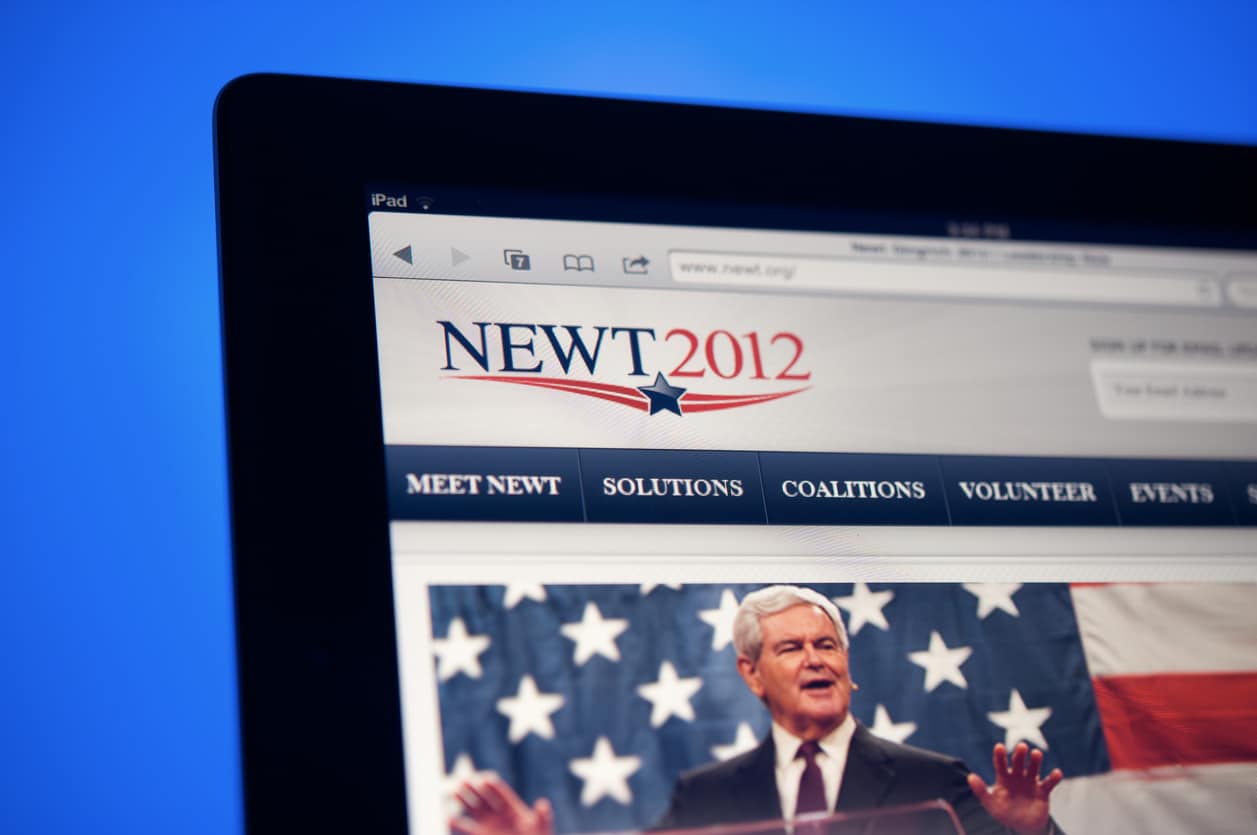
Newt Gingrich, who stood for US President in 2012, was in some ways laid the ideological ground for Donald Trump. Picture by jcamilobernal on iStockPhoto
Then came Donald Trump. He elevated Gingrich’s political strategy to new heights and applied it to foreign as well as domestic policy. Immigrants were “murderers, rapists and drug dealers.” Muslims were “terrorists.” NATO was “obsolete”. Mexico was a “den of drug lords.” African countries were “shitholes.”
At the same time the MAGA president hailed his fellow right-wing leaders around the world. Boris Johnson, Vladimir Putin, Benjamin Netanyahu, Jair Bolsonaro, Viktor Orban, Mohammed bin Salman, Marine Le Pen, Geert Wilders, were all hailed as “strong and wonderful people”. Again, the policy seemed to work. It took the biggest voter turnout since 1876 to oust Trump from the White House. His subsequent lie that he actually won the election may return him to 1600 Pennsylvania Avenue in 2024.
Role of the media
Trump and his ilk have been substantially helped by dramatic changes in the media landscape. The Worldwide Web has given birth to a multitude of progenies – Twitter, Facebook and Instagram to name but a few – as well as any number of internet-based news websites, blogs, vlogs and podcasts. Each has taken a slice of the commercial pie (circulation and advertising) away from the traditional news outlets in print, radio and television.
The internet-based news sites have the advantage of zero print and distribution costs and the ability to immediately reach a global market. They don’t require a broad-based readership. In fact the more niche they are the more likely they are to attract valuable niche advertising. The traditional media have responded by themselves becoming more niche to ring fence and protect their traditional reader bases. The Guardian and The New York Times moved to the left and The Daily Telegraph, Daily Mail and Washington Times to the right.
At the same time some new media entrants discovered there was a lucrative market pedalling fake news, conspiracy theories, and alternative facts, all designed to give their readers what they wanted rather than actual facts.
The result was that – faced with a bewildering of opinion, facts and half-truths and only so many reading hours in a day – people chose only the news outlets which reflected their views and the media landscape became littered with a series of echo chambers.
What about China?
In the meantime, post-Cold War China was quietly escaping from its ideological communist strait jacket to become a superpower. It started with the reforms of Deng Xiaoping in the 1980s whose market reforms were dubbed “socialism with Chinese characteristics.”
The result has been an average annual growth rate of ten percent since 1980 and China’s emergence as the world’s second largest economy and a major threat to America’s political dominance.
A free economic market has not been accompanied by free speech, as Tiananmen Square demonstrated in 1989. Nor has it improved the human rights of millions of Chinese, as demonstrated by the plight of the Uighurs in Xinjiang Province.
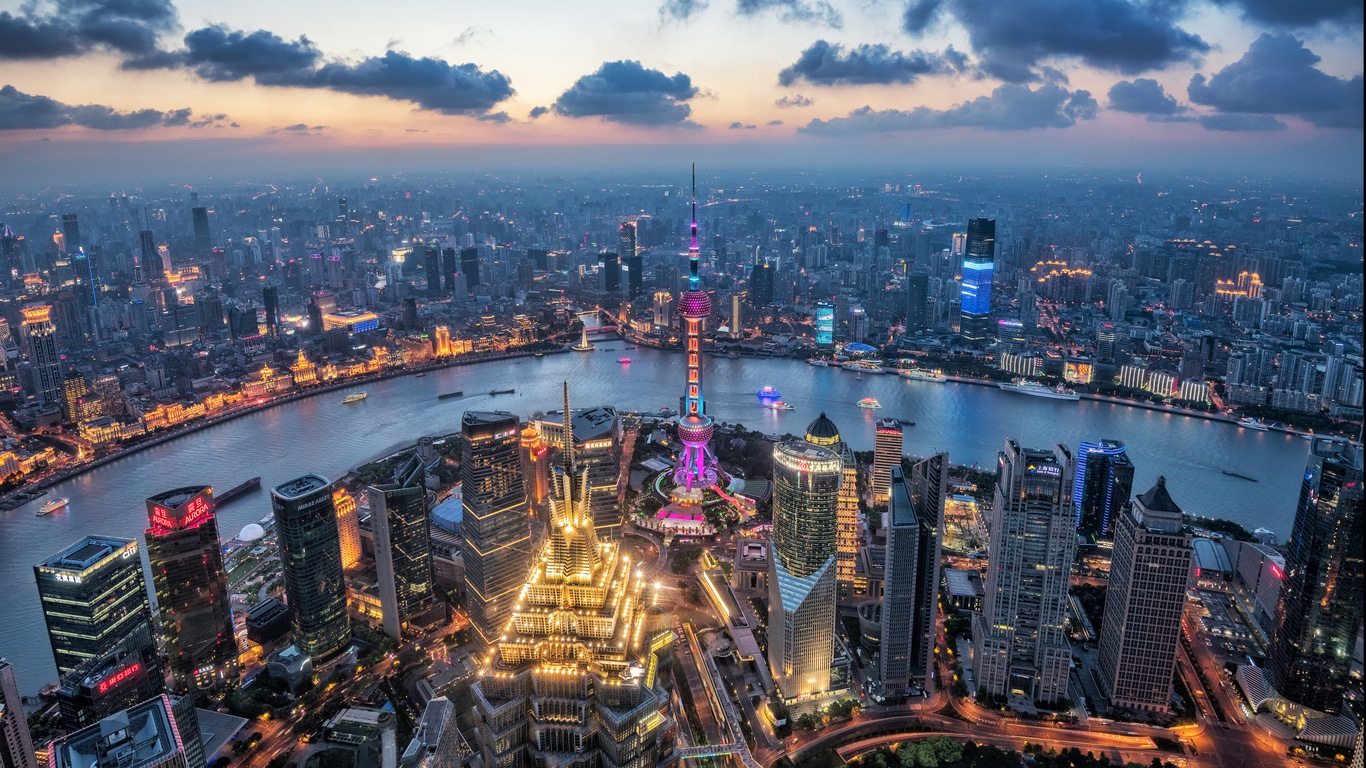
China is a major threat to America’s political dominance. Shanghai at night. Picture by bingdian on iStockPhoto
And billionaires who are seen to become too high profile, such as Ali Baba founder Jack Ma, are quickly reined in, or even disappeared, by the Chinese Communist Party.
The rise of China prompted a realignment in US foreign policy to what President Barack Obama called “an Asian Pivot.” There is no doubt that the political and economic rise of China provides the world with a major challenge.
But as Ukraine has proven, the threat is still from nuclear-armed Russia.
Tom Arms is foreign editor of Liberal Democratic Voice and author of the recently published book “America Made in Britain.” He is currently working on the second edition of his “Encyclopedia of the Cold War.”
Subscribe
Sign-up to receive our newsletter
